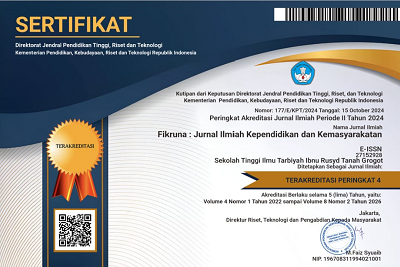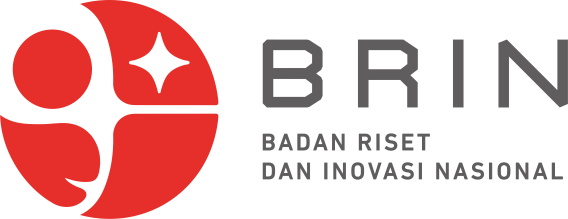DIALOG MORAL UNIVERSAL HARMONISASI PEMIKIRAN HABERMAS, AL-FARABI, DAN KONFUSIUS DALAM ETIKA KOMUNIKASI LINTAS BUDAYA
DOI:
https://doi.org/10.56489/fik.v7i2.317Kata Kunci:
Dialog, Moral Universal Harmonisasi, Habermas, Al-Farabi, Konfusius, Etika Komunikasi Lintas BudayaAbstrak
Penelitian ini bertujuan untuk mengembangkan konsep dialog moral universal dengan mengharmonisasikan pemikiran tiga tokoh penting: Jürgen Habermas, Al-Farabi, dan Konfusius dalam konteks etika komunikasi antarbudaya. Habermas mengemukakan teori tindakan komunikatif yang menekankan pada rasionalitas dan kesepakatan intersubjektif. Sementara itu, Al-Farabi menyoroti pentingnya kebajikan dan tujuan kolektif dalam menciptakan masyarakat yang ideal, dan Konfusius menekankan prinsip harmoni, hubungan hierarkis, serta nilai-nilai kesopanan. Melalui analisis kualitatif dengan pendekatan studi pustaka, penelitian ini menemukan adanya kesamaan di antara ketiga pemikiran tersebut, yaitu pentingnya dialog yang berlandaskan moralitas yang mengintegrasikan rasionalitas, kebajikan, dan harmoni. Model komunikasi antarbudaya yang diusulkan terdiri dari lima pilar utama: kesetaraan dalam dialog, penghormatan terhadap keragaman, pencarian kebenaran bersama, penerapan kebajikan, dan pencapaian harmoni kolektif. Model ini sangat relevan dalam menghadapi tantangan globalisasi yang semakin mendesak untuk interaksi antarbudaya yang etis dan inklusif.
Referensi
Alya Rahmayani Siregar, Azrai Harahap, and Mahardhika Sastra Nasution, ‘Etika Komunikasi Media Digital Di Era Post-Truth’, Jurnal Paradigma: Jurnal Multidisipliner Mahasiswa Pascasarjana Indonesia, 5.1 (2024), 39–53.
Jürgen Habermas, The Theory of Communicative Action (Wiley: Polity Press, 2015).
Abu Nasr Al-Farabi, ‘On The Perfect State, Al-Farabi’, 1985.
Muhammad Rauf, Mushtaq Ahmad, and Zafar Iqbal, ‘Al-Farabi ’ S Philosophy of Education’, Educational Research International, 1.2 (2013), 85–94.
Zhang Longxi and others, East Asian Comparative Literature and Culture (Boston: BRILL, 2014).
Creswell John and Creswell David, Research Design, Qualitative, Quantitative and Mixed Methods Approaches, SAGE Publications,Inc. (Los Angeles: Sage Publications, 2023), Sixth Edit.
Max Weber, The Protestant Ethic and the Spirit of Capitalism, The Routledge International Handbook on Max Weber (London and New York: Routledge, 2022) <https://doi.org/10.4324/9781003089537-14>.
JOHN RAWLS, A THEORY OF JUSTICE (Cambridge: HARVARD UNIVERSITY PRESS, 2015).
W. Littlejohn, Stephen, Karen A.Foss, and John G. Oetzel, THEORIES OF HUMAN COMMUNICATION Eleventh Edition, Waveland Press, Inc., 2017, liii.
Bent Flyvbjerg, Making Social Science Matter (New York: Cambridge University Press, 2015).
Thomas McCarthy, ‘The Critical Theory of Jurgen Habermas’ (Cambridge: The MIT Press, 1981).
Sherry Turkle, Alone Together: Why We Expect More From Technology and Less From Each Other, Journal of Interdisciplinary Studies (New York: Basic Book, 2011), xxxiii <https://doi.org/10.5840/jis2021331/222>.
Christoph Horn and Dieter Schönecker, Groundwork for the Metaphysics of Morals, Groundwork for the Metaphysics of Morals, 2008 <https://doi.org/10.12987/9780300235722>.
Michel Foucault, DISCIPLINE AND PUNISH The Birth of the Prison (NEW YORK: VINTAGE BOOKS, 2015).
Jennifer Rowley, ‘The Wisdom Hierarchy: Representations of the DIKW Hierarchy’, Journal of Information Science, 33.2 (2007), 163–80 <https://doi.org/10.1177/0165551506070706>.
Niklas Luhmann, SOCIAL SYSTEMS, Journal GEEJ (CALIFORNIA: STANFORD UNIVERSITY PRESS, 1995), vii.
Clifford G Christians and others, Media Ethics; Cases and Moral Reasoning; Eleventh Edition (New York: Routledge Taylor & Francis Group, 2020).
Sabih Ahmad Kamali, ‘Tahafut Al-Falasifah’, New Scholasticism (Lahore: Pakistan Philosophical Congress, 1963), 247–49 <https://doi.org/10.5840/newscholas196337247>; Al-Farabi.
Chenyang Li, The Confucian Philosophy of Harmony, The Confucian Philosophy of Harmony (Routledge, 2013) <https://doi.org/10.4324/9781315886619>.
Tu Wei-ming, Confucian Thought: Selfhood as Creative Transformation (New York: State University of New York Press, 1985).
Philip J. Ivanhoe, ‘Confucian Moral Self Cultivation’ (CALIFORNIA: Hackett Publishing Campany, Inc, 2000).
WING-TSIT CHAN, A SOURCE BOOK IN CHINESE PHILOSOPHY, Sustainability (Switzerland) (New Jersey: Princeton University Press, 1963), xi.
Craig Ireland, Self-Identity, Late Modernity, and the Politics of Immediacy (London: McGill-Queen’s University Press, 2004).
Anthony Giddens, Modernity and Self-Identity, Proceedings of the International Conference on Offshore Mechanics and Arctic Engineering - OMAE (UK: Polity Press, 1991), iii.
Tu Wei-ming, Confucian Thought: Selfhood as Creative Transformation (New York: State University of New York Press, 1985);
John M Nicholas and others, ‘Of Critical Philosophy’; Y. Yu and J. Wardenier, Parameter Study on the Static Strength of Axially Loaded Multiplanar XX-Joints in Rectangular Hollow Sections, Proceedings of the International Conference on Offshore Mechanics and Arctic Engineering - OMAE, 1996, iii.



.png)











